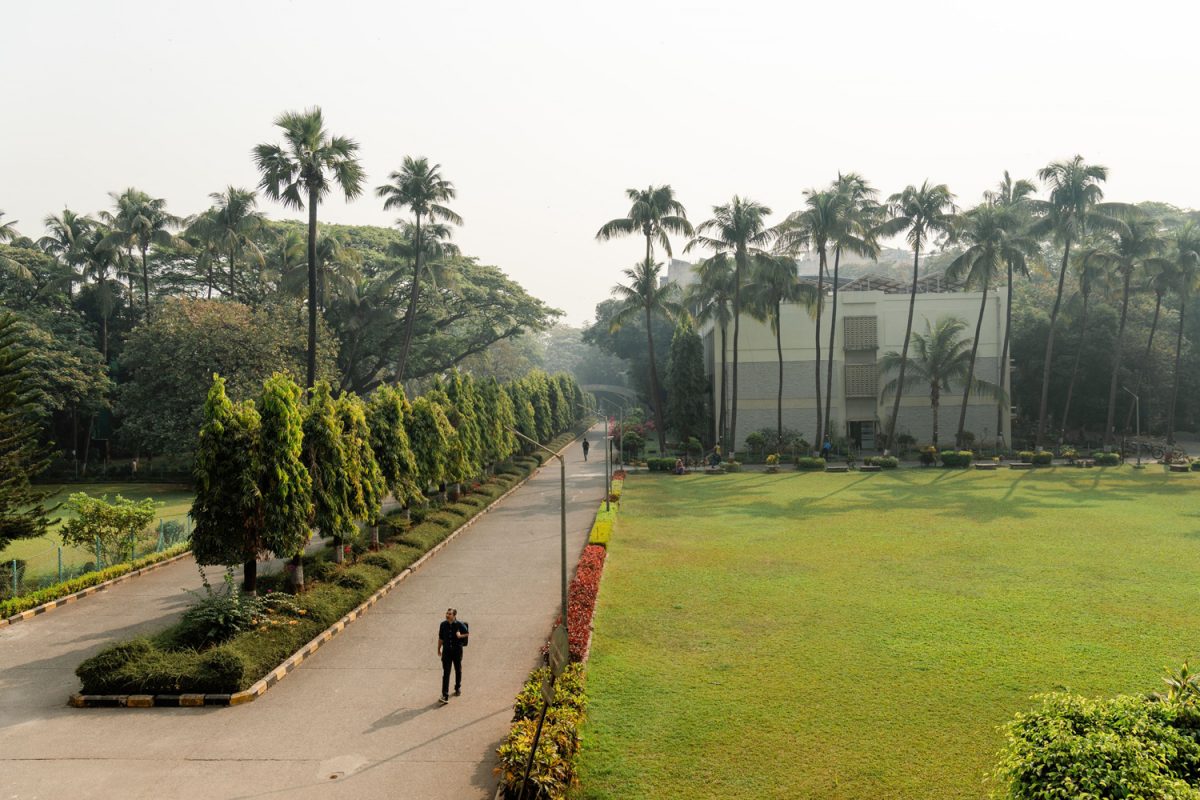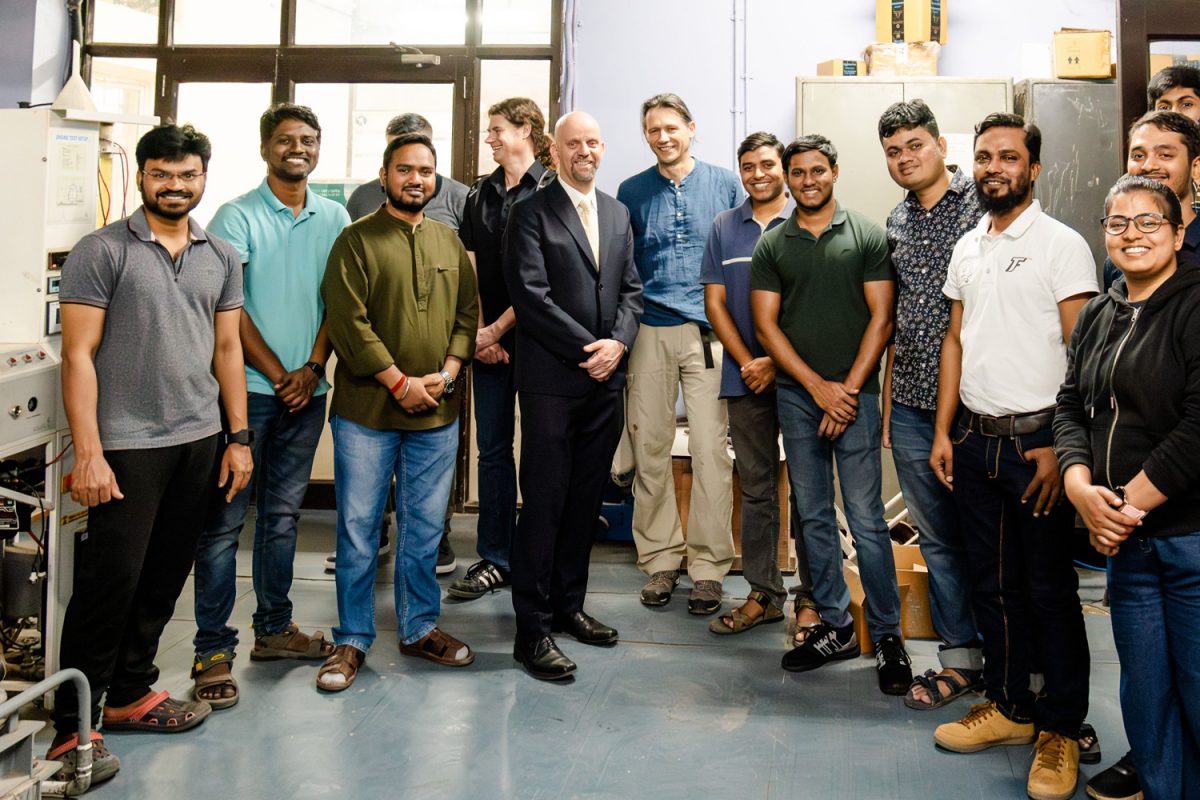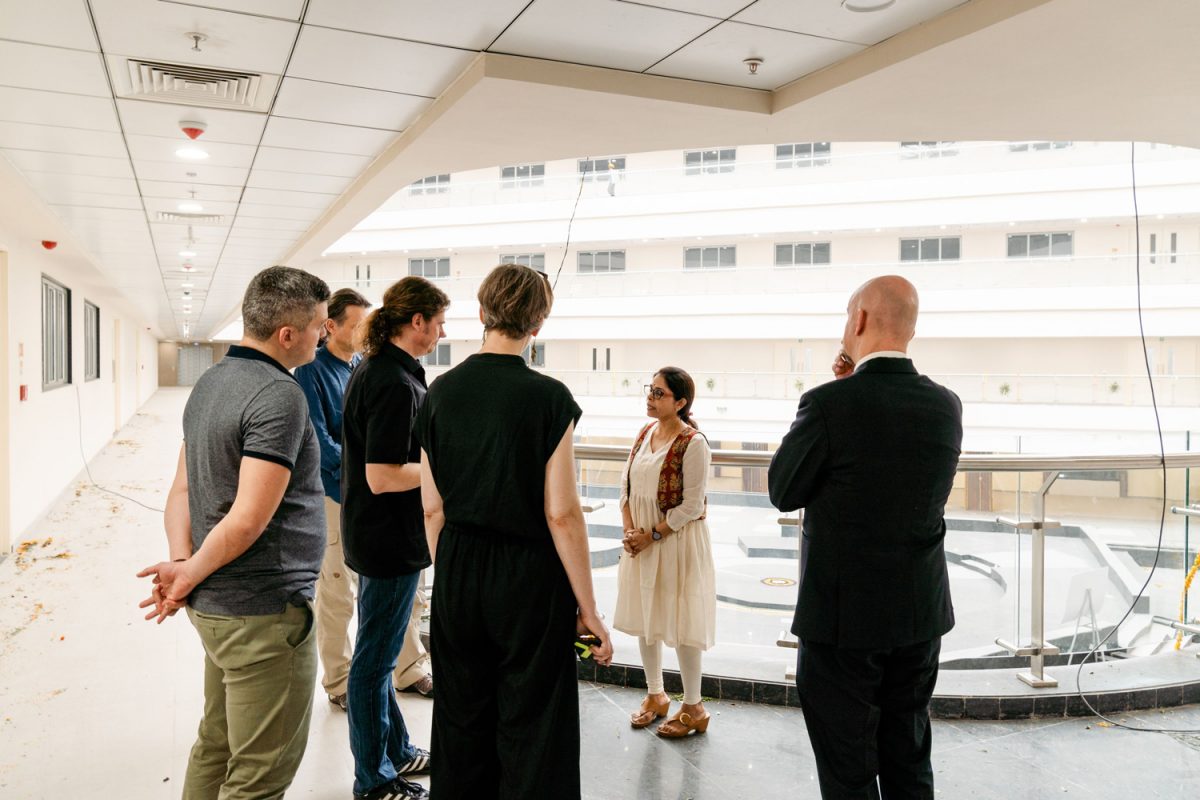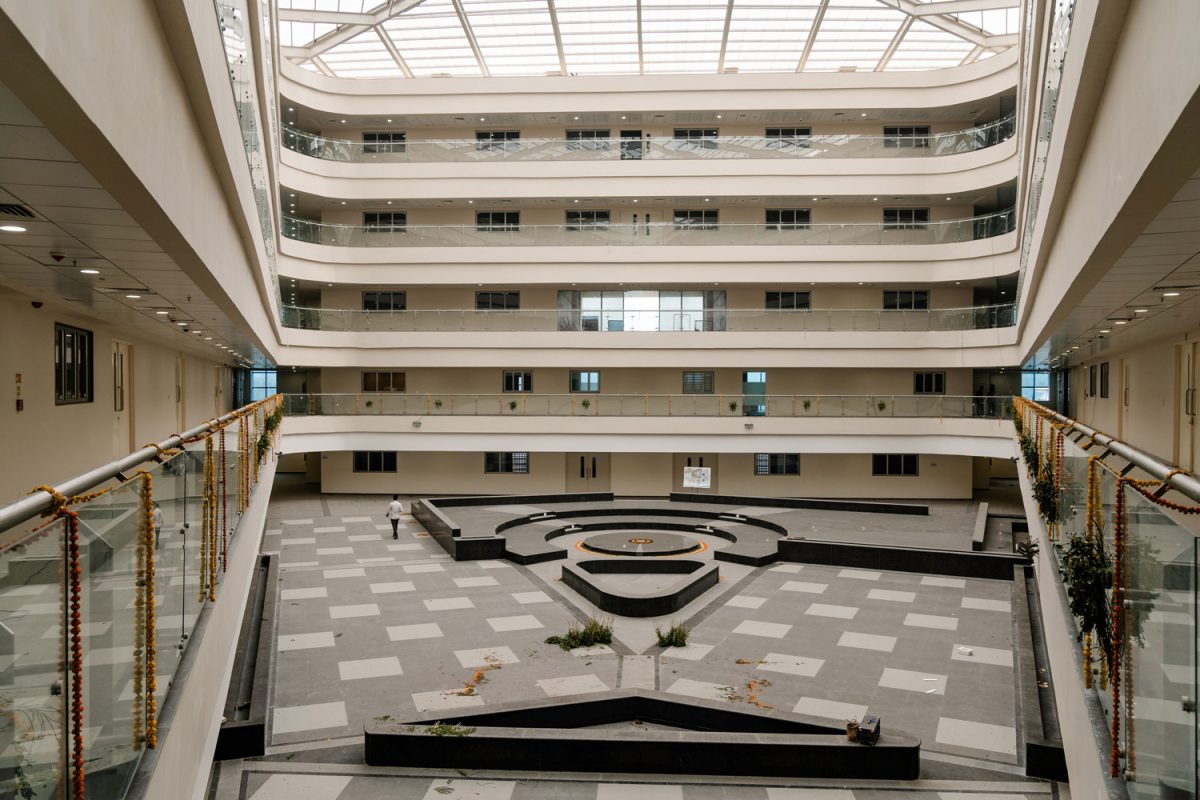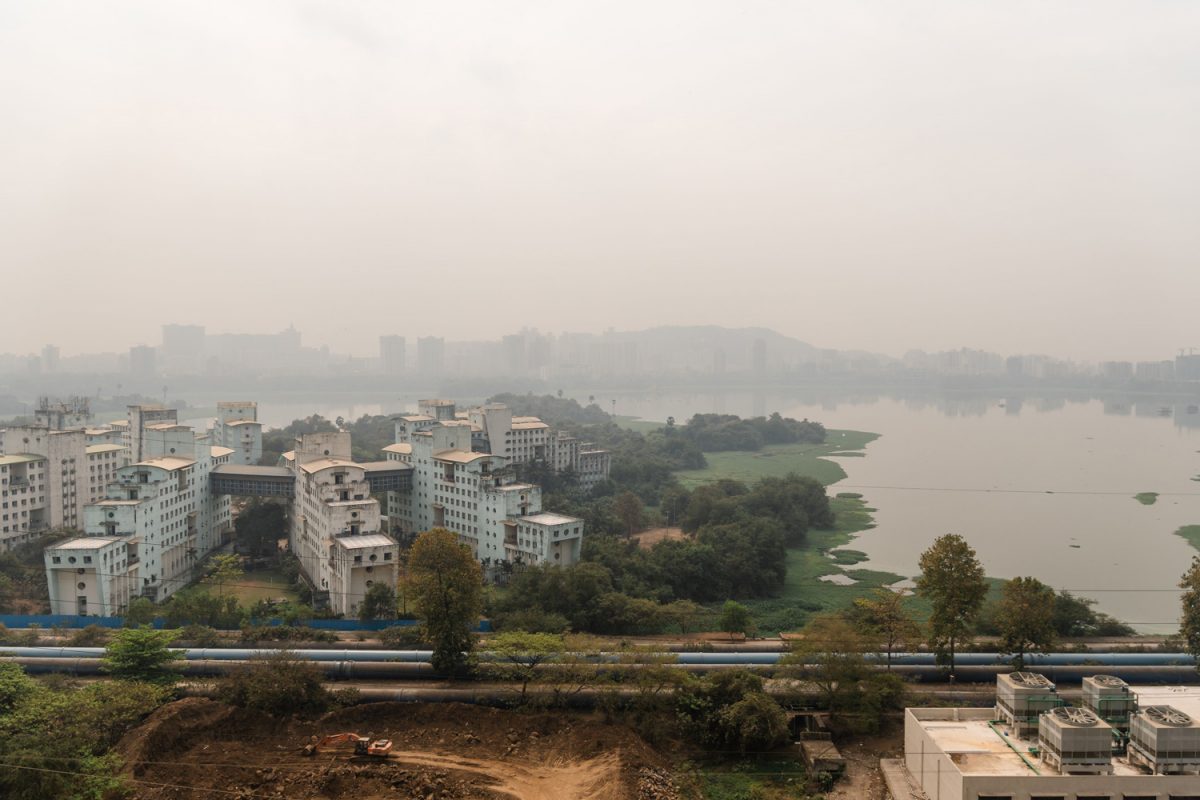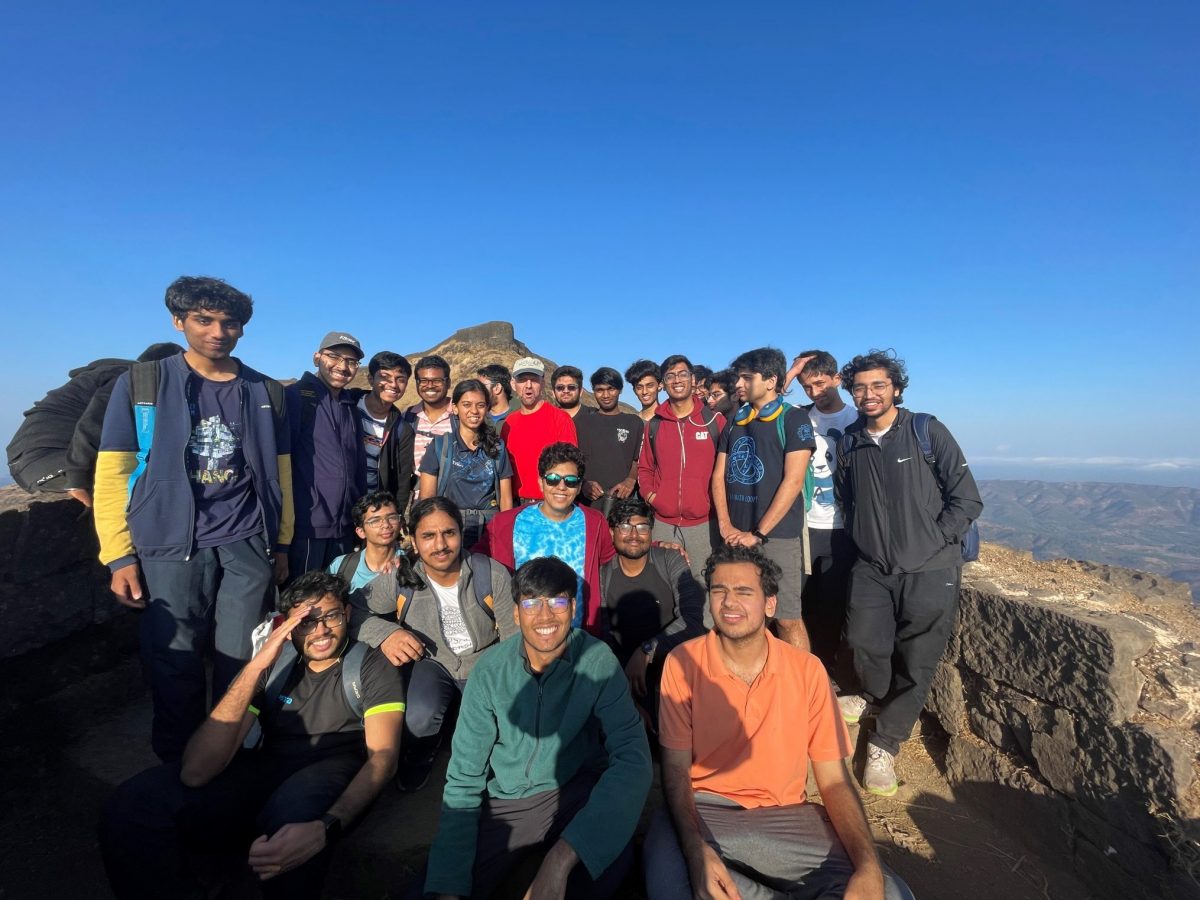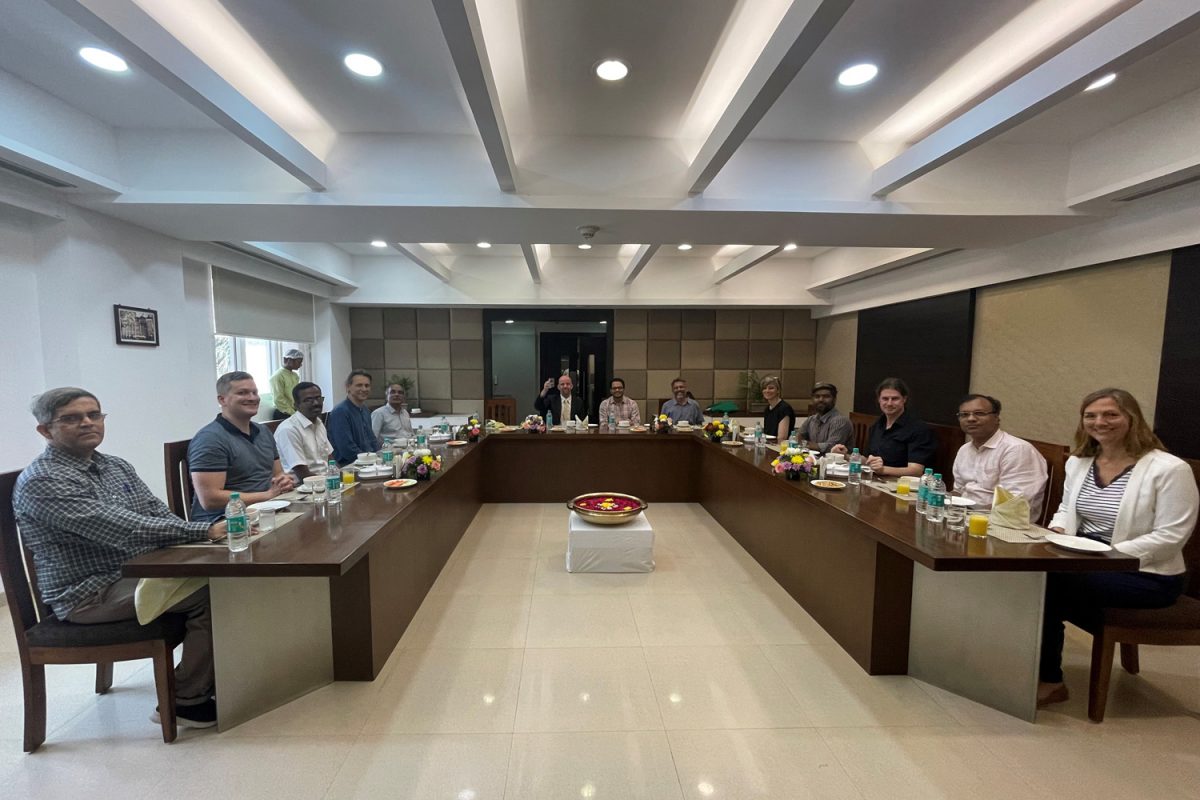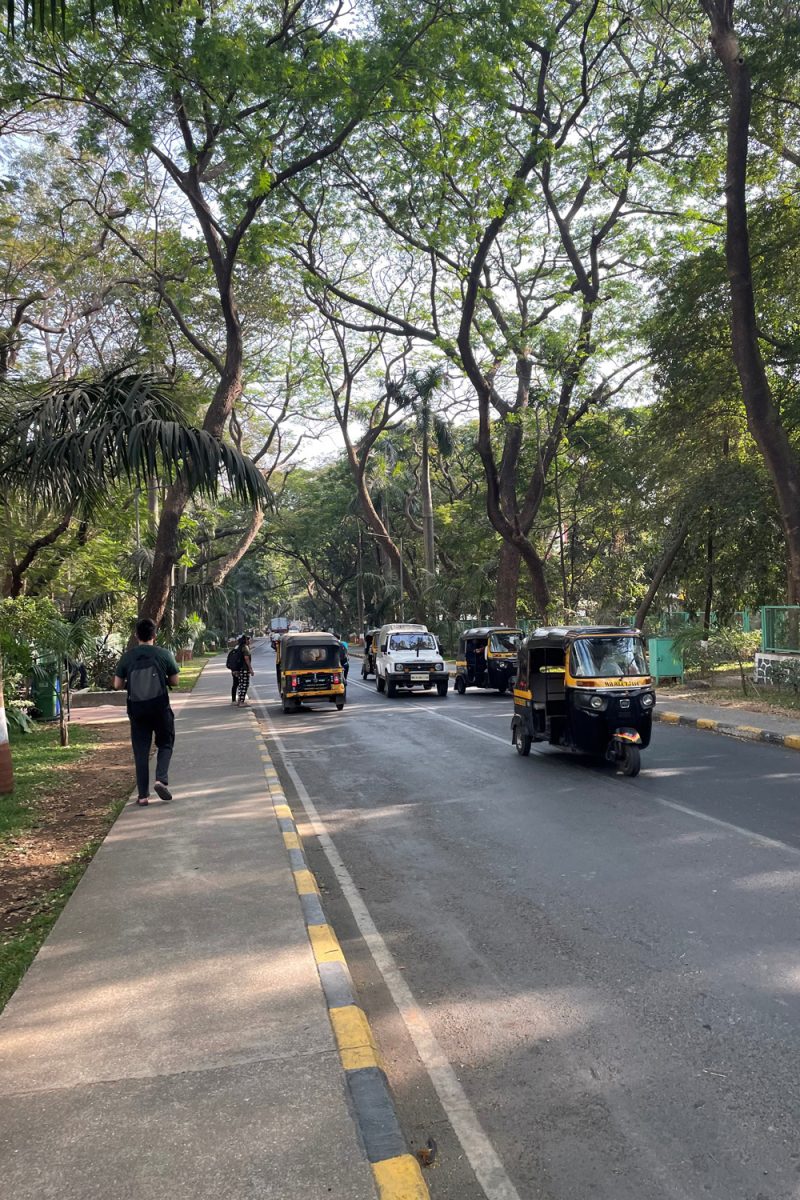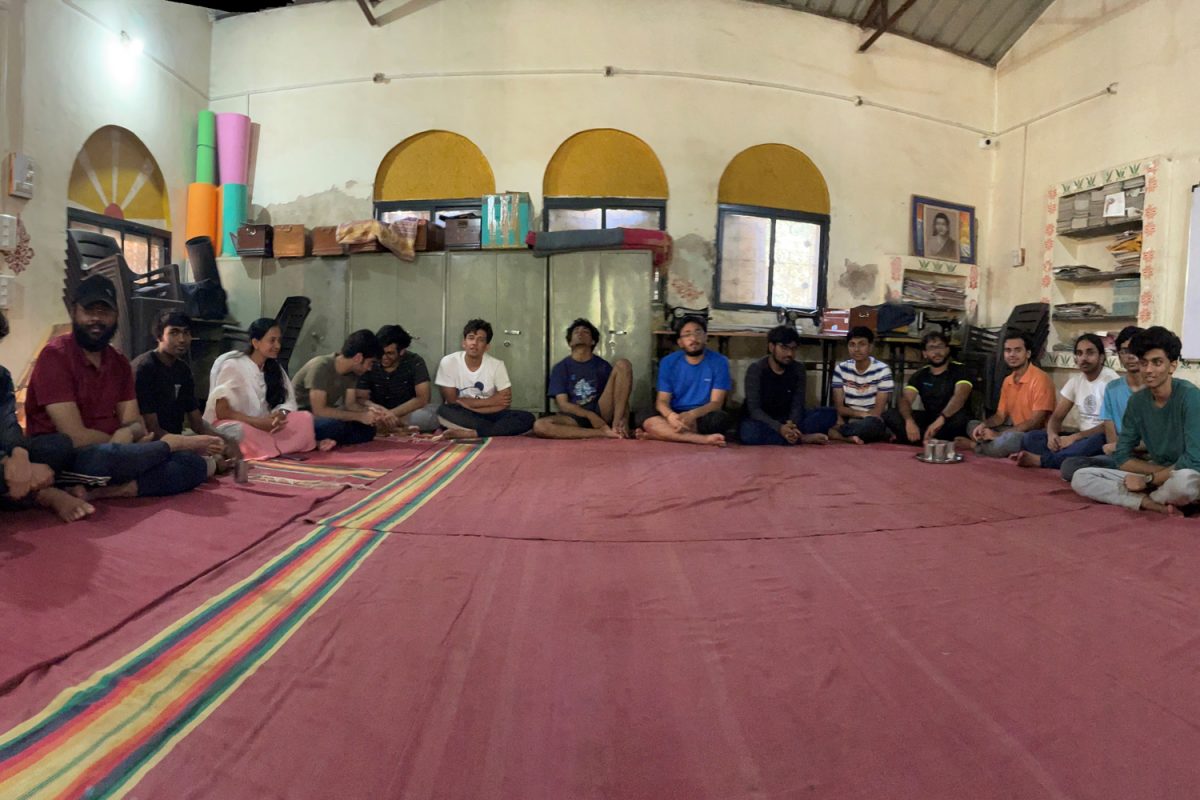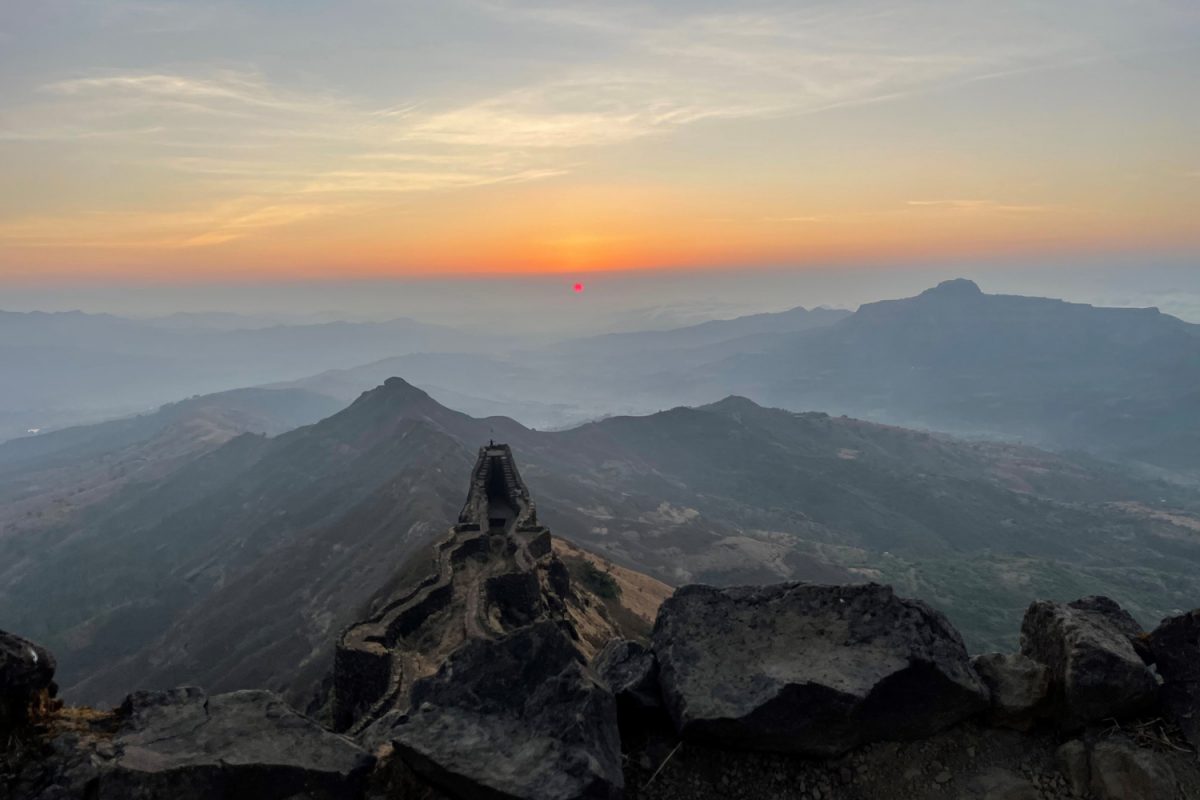Visiting the IIT Bombay Interview about the delegation trip to India to strengthen international cooperation
TU Braunschweig has been cooperating with the Indian Institute of Technology Bombay (IIT Bombay) for more than ten years. At the beginning of March, a TU delegation consisting of Professor Tatjana Schneider, Vice President Internationalization and Regional Relations, Professors Sándor Fekete from the Carl-Friedrich-Gauß Faculty, Michael Hust and Michael Steinert from the Faculty of Life Sciences and Andrés Gómez from the Faculty of Electrical Engineering, Information Technology, Physics, as well as Eika Auschner, TU Officer for Strategic Partnerships, travelled to India to discuss the future direction of the cooperation.
“The cooperation with the IIT Bombay is of great importance to TU Braunschweig. India is one of Germany’s most important cooperation partners in education and research, and Germany is a very attractive destination for Indian students,” emphasizes Vice President Tatjana Schneider. “We would like to further intensify our cooperation in the future and have identified many exciting approaches during our trip.”
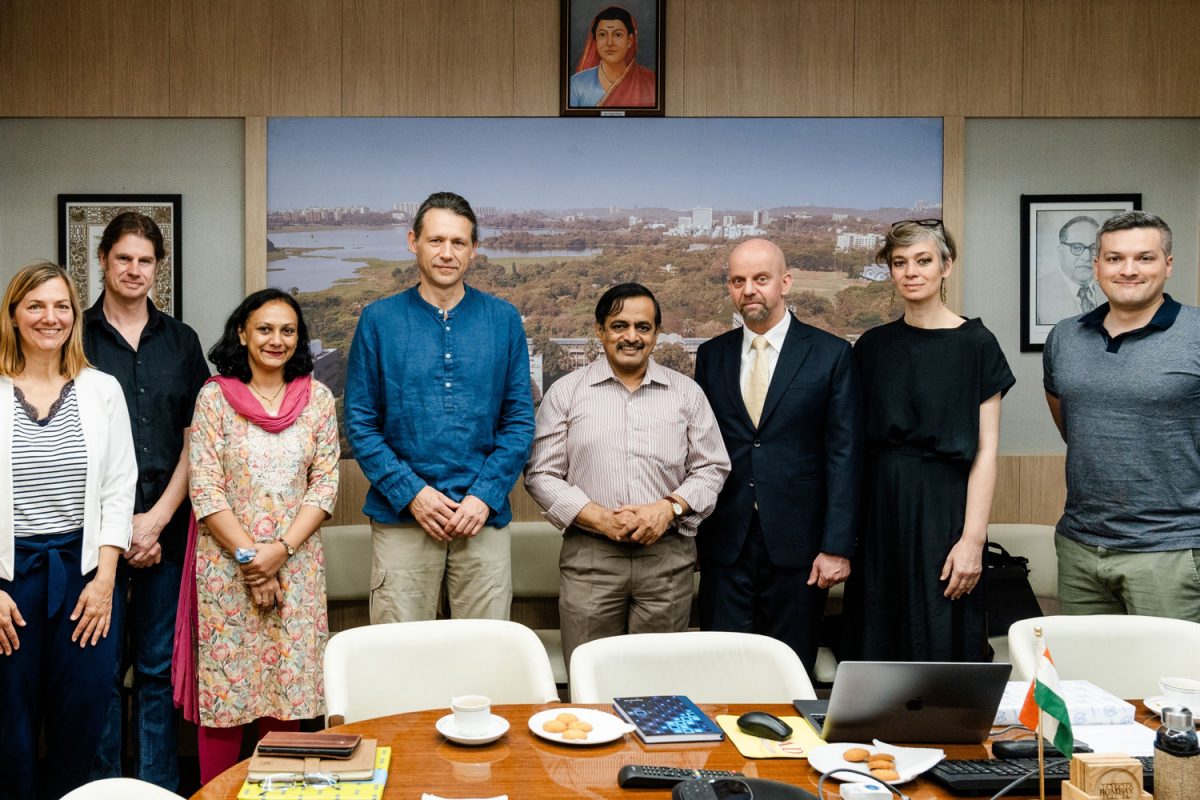
The TU delegation at the IIT Bombay. From left: Eika Auschner, Michael Hust, Tanvi Mehta (Executive Officer, International Relations IIT Bombay), Michael Steinert, Ravindra Gudi (Dean for Alumni and Corporate Relations, IIT Bombay), Sándor Fekete, Tatjana Schneider, Andrés Gómez. Photo: IIT Bombay
Professor Sándor Fekete, initiator and coordinator of the annual student exchange with the IIT Bombay, provides some insights into the background of the delegation trip.
What links TU Braunschweig with the IIT Bombay?
In India, as in Germany, there is a well-established group of leading technical universities, the Indian Institutes of Technology, or IITs for short. These are absolutely elite universities to which only the very best candidates are admitted in a nationwide selection process – around 20,000 out of a total of 1,500,000 applicants per year; the IIT Bombay is among the very best. As a member of TU9, we are perceived as an equal partner. There have been numerous contacts between the two universities for many years and a wide range of cooperation in both research and student exchange, including social issues. The cooperation has been formalized in various agreements since 2012.
What was the reason for the visit?
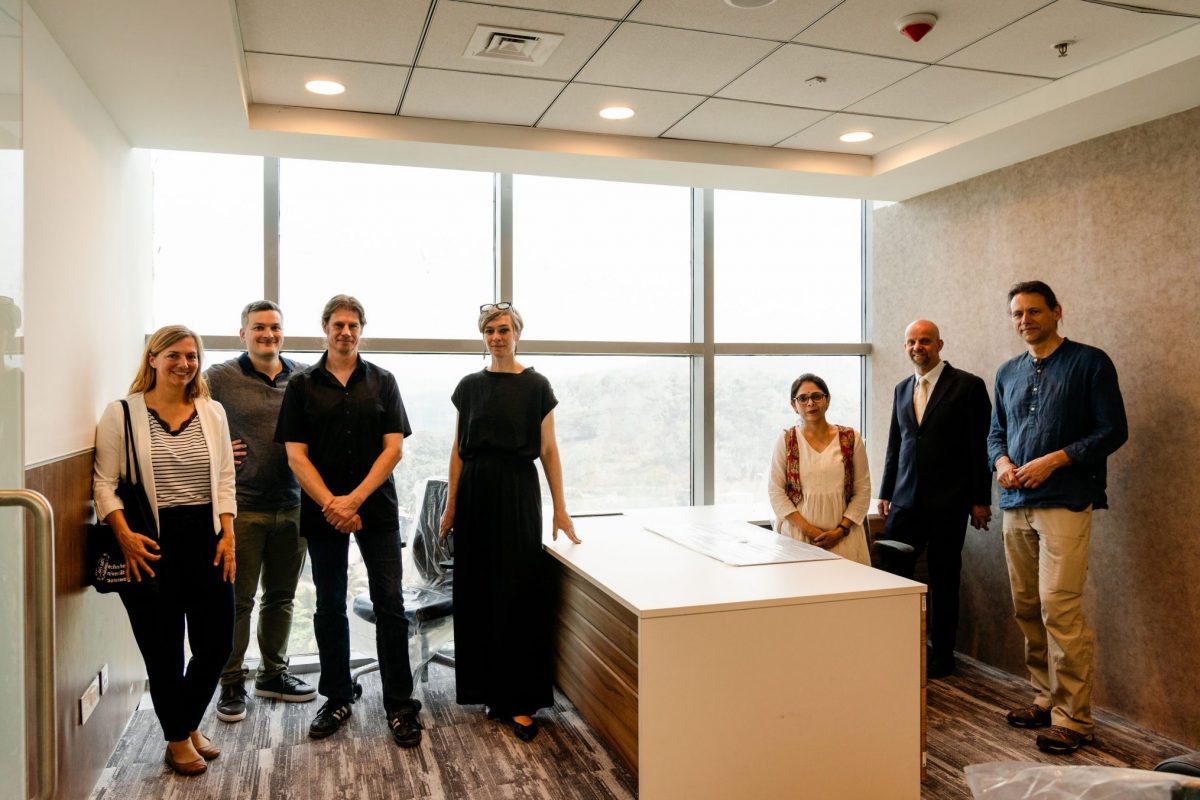
Visit to IIT Bombay’s Reseach Park to meet Kameshwari Mangalampalli, Chief Operation Officer of the Research Park Foundation (3rd from right). Photo: IIT Bombay
We followed an invitation by the President of the IIT Bombay, Professor Subhasis Chaudhuri. The aim was to intensify contacts between our two universities after the pandemic-related break. In 2019, Professor Chaudhuri visited TU Braunschweig with a 14-member delegation and not only renewed the contractual agreements, but also signed a new agreement on the mutual exchange of doctoral students. Although we maintained contact during the pandemic, everyone was naturally very busy with their own problems at the time. As there are contacts to India from all six faculties of TU Braunschweig, we wanted to expand and strengthen the diverse cooperation with an interdisciplinary delegation, make it more concrete in many aspects and extend it to other areas. At the same time, it is also strategically extremely important for German research institutions such as TU Braunschweig to expand the partnership-based cooperation with the fast-growing Indian education and research system. India’s economic development also plays an important role; we have noticed this in Mumbai, as many international delegations are currently making their way there. We are quite fortunate that we can build on well-established relationships that can be nurtured and grown!
What were the main topics during your stay?
The list is long! Our delegation consisted of representatives from all disciplines at TU Braunschweig; in addition, the two professors Nils Goseberg from the Faculty of Architecture, Civil Engineering and Environmental Sciences and Eckart Voigts from the Faculty of Humanities and Education were also involved remotely. In all areas, including mechanical engineering, which was involved on the IIT Bombay side, there were excellent contacts and discussions of great mutual interest. There are many synergy effects: For example, the new Dean of International Relations at the IIT Bombay is also a specialist in aircraft propulsion, which fits thematically with our Cluster of Excellence SE2A; in addition, there is a research institute at the IIT Bombay that corresponds to our LENA (and thus the Cluster of Excellence “Quantum Frontiers”). We also met with the Dean for Corporate Relations at the IIT Bombay and spoke with the Chief Operating Officer of the new Research Park, who has already been to Braunschweig and will visit us again at the next opportunity. There were also other contacts made on site: For example, there was a lively conversation with the Chair of the Department of Humanities about social challenges and the role of the humanities at a technical university. There are also points of contact in the area of administration: The IIT Bombay has presented us with a draft agreement for institutional cooperation between administrative staff. In direct discussions with Professor Chaudhuri, there were also overarching perspectives for further intensive collaboration. And finally, we took the opportunity to talk to past and future research interns: Next spring, we will once again host 19 students from IIT Bombay at ten different institutes of the Carl-Friedrich-Gauß Faculty and the Faculty of Electrical Engineering, Information Technology, Physics!
What have you learned during this visit?
Personal contacts are priceless! Strategic cooperation is not just an abstract concept but comes to life when people come together whose goals and interests are good matches. That worked really well here! There was a great deal of enthusiasm and interest on both sides in many areas, which will certainly lead to further activities and contacts – from biotechnologies and infectious diseases, coastal protection and hydrology, propulsion and nanotechnology, computer science and its applications, to English literature and social inequality: Whether in research, teaching, or transfer – together we can achieve a great deal!
What was your personal highlight?
In addition to the many great conversations and old and new contacts, I was able to see very clearly that sustainability in a cooperation is not just an abstract concept, but based on long-term goals and relationships. This was particularly evident in my contacts with former research interns, who still feel very near and dear to us. A group of them organized a special expedition to the historic Torna Fortress, 190 kilometers away. The joint overnight tour up the steep and impassable mountain with sunrise at high altitude and views over the vast and wild landscape was spectacular! Afterwards, we visited an organization that runs educational programs in the economically very difficult region, with some support by our former interns. This also shows that our programs in Braunschweig not only offer special opportunities to exceptionally talented students, but also create even better opportunities for responsible future leaders to turn special talent and hard work into special opportunities for many other people!

